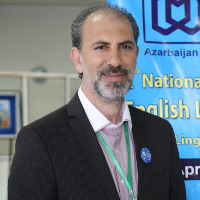Relationship between Second Language Deep Vocabulary Knowledge and Speaking Performance: Mediation of Task Type
Most of the models accounting for L2 oral production have deemed a significant role for vocabulary knowledge in this process. Previous studies have demonstrated a positive relationship between different aspects of lexical knowledge and performance or proficiency of second language skills including the speaking performance. Meanwhile, the findings have suggested a determining role for the task type used for measuring speaking performance when one or more aspects of lexical knowledge are in focus. This study was conducted to investigate the relationship between the EFL Learners’ deep vocabulary knowledge (DVK) and speaking performance by scrutinizing the mediating role of task type. To this end, 102 bachelor ELT students were given Word Associate Test to measure their DVK, and a planned presentation task and unplanned tasks of description, narration and reasoning to elicit speaking performance. The elicited samples of speaking performance were transcribed and analyzed in terms of fluency, accuracy, lexical complexity and grammatical complexity. Structural equation modeling indicated a lack of causal relationship between DVK and aspects of speaking performance as measured with both planned and unplanned tasks. However, mixed results were obtained in the case of the correlations of fluency, accuracy, grammatical complexity and lexical complexity with DVK across different tasks. Although the findings do not provide evidence for a strong relationship between DVK and speaking performance when DVK is analyzed in isolation from other aspects of vocabulary knowledge, the variation witnessed in findings provide further proof for the importance of task effectiveness in the study of lexical access.
-
The Impact of Brain-Based Teaching on Iranian EFL Learners' Vocabulary Retention and Recall
*, Mahsa Rahmani Asl, Abolfazl Ghasemzadeh
Journal of Modern Research in English Language Studies, Winter 2025 -
Editorial
*
Journal of Applied Linguistics and Applied Literature: Dynamics and Advances, Winter-Spring 2023 -
Editorial
Journal of Applied Linguistics and Applied Literature: Dynamics and Advances, Summer-Autumn 2022 -
Teachers’ and Students’ Attitude towards Code-Switching in Learning English in Iranian EFL Classes
Shahla Nazeri *, , Farzad Salahshoor
Interdisciplinary Studies in English Language Teaching, Winter and Spring 2021




